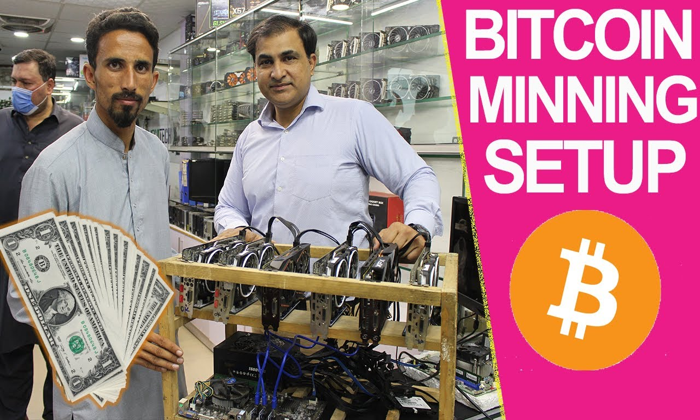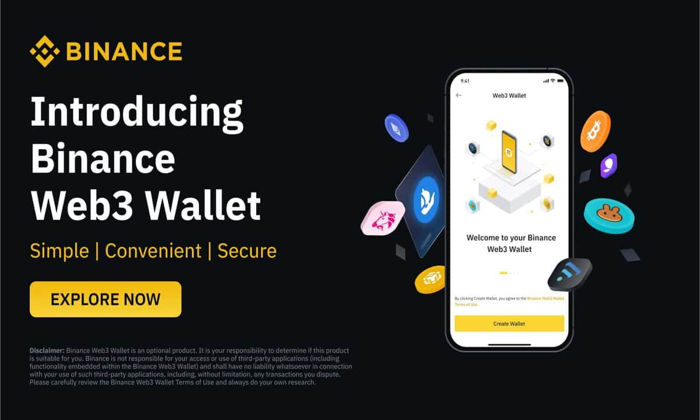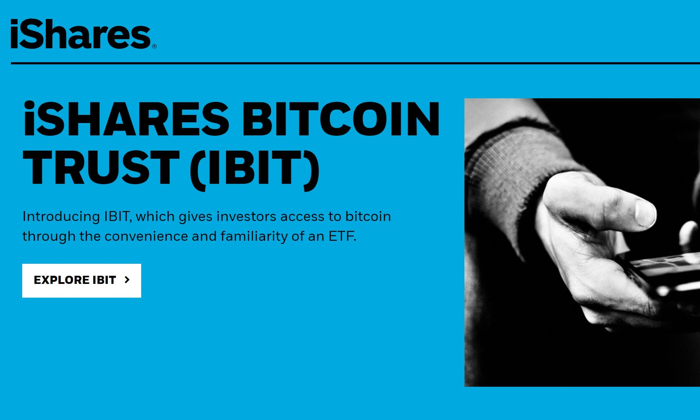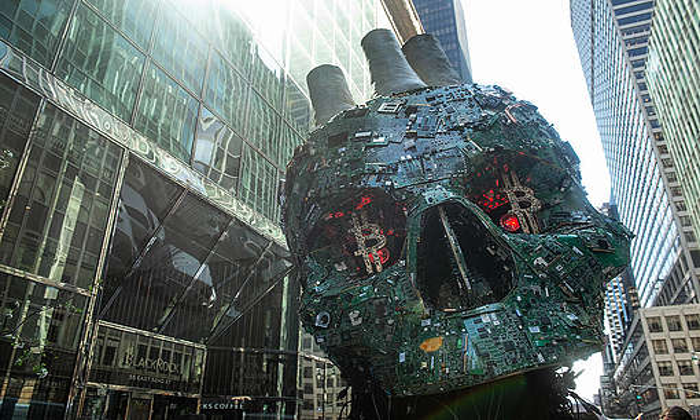Dubai real estate tokenization marks a groundbreaking venture in property investment, as the Dubai Land Department (DLD) embraces cutting-edge technology to enhance ownership accessibility. By harnessing the power of the XRP Ledger (XRPL), this initiative allows investors to engage in tokenized real estate with lower barriers, making fractional ownership a reality for many. With over 3,000 interested investors, the project is on track to generate an impressive $16 billion in tokenized real estate transactions by 2033. This integration of blockchain technology not only streamlines the issuance and tracking of title deeds but also bridges the gap between traditional property records and modern digital platforms. As a result, Dubai is set to become a global leader in utilizing innovative financial technologies in the real estate sector, fostering a new wave of property investment opportunities for all.
The digital transformation of real estate in Dubai is exemplified by its recent shift towards the tokenization of properties, simplifying the process of investing in the real estate market. This innovative approach allows for the creation of digital tokens representing ownership shares in real estate assets, thus democratizing access to property investment. The collaboration with the XRP Ledger ensures a secure and efficient framework for managing these digital assets, paving the way for fractional ownership opportunities. As Dubai’s real estate landscape evolves, this progressive move underscores the city’s commitment to adopting advanced technologies, ultimately aiming to redefine how properties are bought and sold. Such initiatives not only enhance the investor experience but also align with global trends in asset tokenization and blockchain integration.
The Future of Dubai Real Estate Tokenization
Dubai is transforming its real estate landscape through innovative strategies like real estate tokenization, expected to redefine property investments. By leveraging blockchain technology, especially the XRP Ledger (XRPL), the Dubai Land Department aims to streamline property transactions. This shift is not just about digital titles; it’s about making ownership more accessible to a broader audience. As the city sets ambitious goals of generating $16 billion through tokenized assets by 2033, it is paving the way for a new era in property investment.
Such initiatives demonstrate Dubai’s commitment to integrating modern technologies within traditional sectors. The introduction of fractional ownership allows individuals to invest with lower entry thresholds, thus democratizing access to real estate. Investors no longer need substantial capital to own a piece of Dubai’s expensive property market. This is a paradigm shift that opens doors for new classes of investors who would otherwise be excluded from this lucrative market.
Understanding Fractional Ownership in Dubai’s Property Market
Fractional ownership is a game-changer for Dubai’s real estate market, allowing multiple investors to collectively hold a share in a single property. This approach reduces the financial burden on individual investors while still granting them the benefits of property ownership. By utilizing platforms like Prypco Mint, even investments as minimal as AED 2,000 can grant individuals access to the vibrant Dubai property market. The implications for accessibility and investment diversity are immense.
Furthermore, fractional ownership through tokenization ensures that properties are not only more affordable but also accompanied by transparent transactions. Each token represents a share in the property, recorded on the XRP Ledger, which enhances security and traceability. This technology ensures that every investor can track their ownership rights and transaction history seamlessly, safeguarding against potential fraud and misunderstanding.
How the XRP Ledger Supports Real Estate Tokenization
The XRP Ledger (XRPL) is at the heart of Dubai’s real estate tokenization initiative, facilitating efficient and secure transactions. Chosen by the Dubai Land Department for its rapid transaction speeds and low costs, XRPL provides the necessary technological backbone for modern real estate solutions. With the integration of blockchain technology, Dubai aims to bridge the gap between traditional property registries and innovative digital solutions.
By utilizing XRPL, the Dubai Land Department can issue and manage title deeds on-chain, meaning that all real estate transactions will be recorded transparently. This reduces the risk of disputes and enhances legal clarity in property ownership. Additionally, the ability to settle transactions quickly encourages more investment opportunities within the city, thereby supporting the projected growth of the tokenized real estate market.
Impact of Blockchain on the Dubai Land Department
The embrace of blockchain technology by the Dubai Land Department is set to revolutionize property transactions within the emirate. By integrating tokenization and traditional systems, the DLD is creating a hybrid model that enhances security and efficiency. This approach aligns well with Dubai’s vision of being a global leader in innovation and technology. Moreover, partnerships with technology firms like Ctrl Alt reinforces Dubai’s commitment to integrating cutting-edge solutions into its regulatory framework.
Blockchain’s transparency allows for real-time tracking of property transactions, ensuring that title deeds reflect the current ownership accurately. This technological upgrade fosters trust among investors, as they can verify ownership and transaction details on a publicly accessible ledger. This transparency is crucial in a market where over 3,000 investors have already expressed interest in the tokenization project, highlighting the significant demand for a reliable, innovative real estate investment avenue.
Market Potential for Tokenized Real Estate in Dubai
The projected market potential for tokenized real estate in Dubai is staggering, with estimates suggesting that it could reach $16 billion by 2033. This projection is built on a foundation of strong investor interest, with thousands expressing eagerness to participate in this evolving market. As traditional barriers to property investments dissolve through innovative financial solutions such as tokenization, Dubai stands poised to attract not only local but also international investors seeking new opportunities.
This anticipated growth reflects a wider trend observed globally in the property sector, where the integration of digital currencies and blockchain technology is reimagining how people invest in real estate. The success of such initiatives in Dubai can serve as a model for other cities considering similar pathways, promoting the idea of fractional ownership as a staple of modern property investment strategies.
The Role of the Dubai Future Foundation in Real Estate Innovation
The Dubai Future Foundation plays a critical role in shaping the future of the emirate’s economy, particularly in the realm of real estate innovation. By supporting initiatives like the real estate tokenization project, the foundation ensures that Dubai remains at the forefront of adopting groundbreaking technologies. Its collaboration with the Dubai Land Department and other stakeholders underscores a commitment to exploring new avenues for property investment through tech-driven solutions.
Through such partnerships, the Dubai Future Foundation is fostering a culture of entrepreneurship and technological integration, encouraging startups and established firms to innovate. This not only enhances the local economy but also positions Dubai as a competitive player on the global stage in terms of digital real estate transactions. As more technologies emerge, the foundation’s role will be pivotal in guiding the transition toward a more integrated and innovative real estate market.
Investor Confidence in Dubai’s Real Estate Tokenization
Investor confidence is crucial for the success of any new financial initiative, and the real estate tokenization project in Dubai is no exception. With over 3,000 prospective investors already interested, it is clear that there’s a strong belief in the potential and benefits of tokenized property ventures. The combination of low entry costs and high potential returns creates an attractive investment landscape that is hard to ignore.
Furthermore, the backing from reputable local institutions like the Dubai Land Department enhances this confidence. Investors are reassured by the regulatory framework and the technological capabilities provided by XRPL, knowing that their investments are underpinned by secure, transparent, and efficient processes. This foundational trust is essential for sustained growth in the real estate market, particularly as the demand for tokenized assets continues to rise.
The Future Investment Landscape in Dubai
Looking ahead, the investment landscape in Dubai is set to evolve significantly as tokenization takes center stage. By embracing advanced technologies, the city is reshaping how individuals view property investments, moving from traditional ownership models to more flexible, diversified options. This transformation not only attracts a wider audience but also caters to the changing needs of modern investors who are increasingly seeking smarter ways to allocate their funds.
As this trend gains momentum, it is likely that Dubai will see an influx of new investment opportunities, particularly in the realm of urban developments and mixed-use properties. As tokenization allows for fractional shares, new projects could arise where many investors collectively contribute to high-value developments. This collaborative investment approach stands to enhance community engagement and drive innovation in Dubai’s urban landscape.
Navigating Regulatory Frameworks in Tokenized Real Estate
Successfully navigating the regulatory frameworks surrounding tokenized real estate is vital for the initiative’s sustainability and growth. The Dubai Land Department’s proactive approach in collaborating with technology firms ensures that all processes comply with local laws, enhancing investor confidence. Moreover, the transparency offered by blockchain technology aligns well with regulatory requirements, creating an environment conducive to growth while maintaining necessary oversight.
As the market for tokenized real estate expands, it will be imperative for stakeholders to remain informed about regulatory changes. This adaptability will allow them to ensure that their offerings meet both investor expectations and compliance requirements. Continuous dialogue between regulatory bodies, technology partners, and investors will foster a healthily growing market that balances innovation with protection.
Frequently Asked Questions
What is Dubai real estate tokenization and how does it relate to the XRP Ledger?
Dubai real estate tokenization refers to the process of converting property ownership into digital tokens on a blockchain, specifically the XRP Ledger (XRPL). This initiative allows for the secure issuance and tracking of property title deeds, making real estate investments more accessible through fractional ownership.
How does tokenized real estate work in Dubai?
Tokenized real estate in Dubai allows investors to buy fractional shares of property for as little as AED 2,000. Utilizing the XRP Ledger, transactions are recorded on a secure blockchain, linking digital assets with traditional property records managed by the Dubai Land Department.
What role does the Dubai Land Department play in the real estate tokenization initiative?
The Dubai Land Department (DLD) is pivotal in the real estate tokenization initiative, as it oversees the integration of blockchain technology with existing property records. By partnering with the XRP Ledger and other organizations, the DLD ensures secure and efficient management of property transactions.
What benefits does fractional ownership of real estate in Dubai provide to investors?
Fractional ownership through Dubai real estate tokenization enables more investors to participate in the property market with lower financial barriers. Investors can own portions of high-value properties, diversify their investment portfolio, and benefit from potential rental yields or property appreciation.
How can investors participate in Dubai’s real estate tokenization project?
Investors can participate in Dubai’s real estate tokenization project by using platforms like Prypco Mint, where they can purchase tokenized shares of property starting at AED 2,000. This approach democratizes property investment, making it accessible to a broader audience.
What is the projected value of the real estate tokenization market in Dubai by 2033?
The real estate tokenization market in Dubai is projected to reach a value of $16 billion by 2033. This initiative is expected to represent about 7% of the total property transactions in the city, showcasing the significant impact of blockchain technology on the local real estate sector.
Why was the XRP Ledger chosen for Dubai’s real estate tokenization initiative?
The XRP Ledger was chosen for its low transaction fees, rapid processing speeds, and regulatory compatibility, which make it an ideal platform for executing real estate transactions securely and efficiently. These attributes enhance the overall user experience and reliability of the tokenization process.
What future developments can be expected in Dubai’s tokenized real estate sector?
Future developments in Dubai’s tokenized real estate sector may include the introduction of new tokenized financial products, increased investor participation, and enhancements to the underlying blockchain infrastructure, further integrating digital assets with traditional real estate practices.
| Key Point | Details |
|---|---|
| XRP Ledger Selection | Dubai Land Department has chosen XRP Ledger to power its real estate tokenization initiative. |
| Partners Involved | Key partners include Dubai Future Foundation, Prypco, and Ctrl Alt who will manage the tokenization framework. |
| Investment Accessibility | Individuals can invest in real estate with a minimum of AED 2,000 through the Prypco Mint platform. |
| Investor Interest | Over 3,000 investors have expressed interest in the tokenization project. |
| Projected Revenue | The initiative aims to generate $16 billion in real estate activity by 2033. |
| Benefits of Tokenization | Provides fractional ownership and makes real estate more accessible to a wider audience. |
| XRPL Advantages | Benefits include rapid transaction speeds, low fees, and compatibility with regulatory frameworks. |
Summary
Dubai real estate tokenization is set to revolutionize the property investment landscape by leveraging advanced blockchain technology through the XRP Ledger. This innovative initiative, supported by several key partners, aims to provide unprecedented access to the real estate market for everyday investors. With projections of $16 billion in activity by 2033 and the ability to invest in property fractions starting at AED 2,000, Dubai’s approach showcases its commitment to embracing modern financial technologies. The initiative not only reinforces Dubai’s position as a leader in the digital economy but also aligns with global trends towards asset tokenization, making it an exciting opportunity for current and prospective investors.
Dubai real estate tokenization is set to revolutionize property investment in the emirate, leveraging blockchain technology for improved efficiency and accessibility. Spearheaded by the Dubai Land Department (DLD) and powered by the XRP Ledger, this initiative aims to make fractional ownership of properties a reality, allowing investors to enter the real estate market with as little as AED 2,000. As part of this groundbreaking project, numerous partners are collaborating to create a seamless connection between traditional property registries and digital asset management. With over 3,000 investors already expressing interest, Dubai forecasts a staggering $16 billion in tokenized real estate transactions by 2033. This bold step reflects Dubai’s commitment to embracing innovative financial technologies while enhancing the overall appeal of tokenized real estate to a global audience.
The concept of property digitalization in Dubai is gaining momentum through a cutting-edge initiative that harnesses advanced blockchain capabilities. Focused on creating a transparent and efficient property investment landscape, this venture introduces various methods of fractional real estate ownership, enabling more individuals to engage in the real estate market. With the backing of significant institutional partners and a robust technological framework, this effort illustrates the potential to merge traditional real estate with modern investment opportunities. As tokenized real estate gains traction in global markets, the integration of the XRP Ledger positions Dubai as a forerunner in this transformative field. This initiative not only promises to expand investment possibilities but also paves the way for secure and streamlined property transactions.















